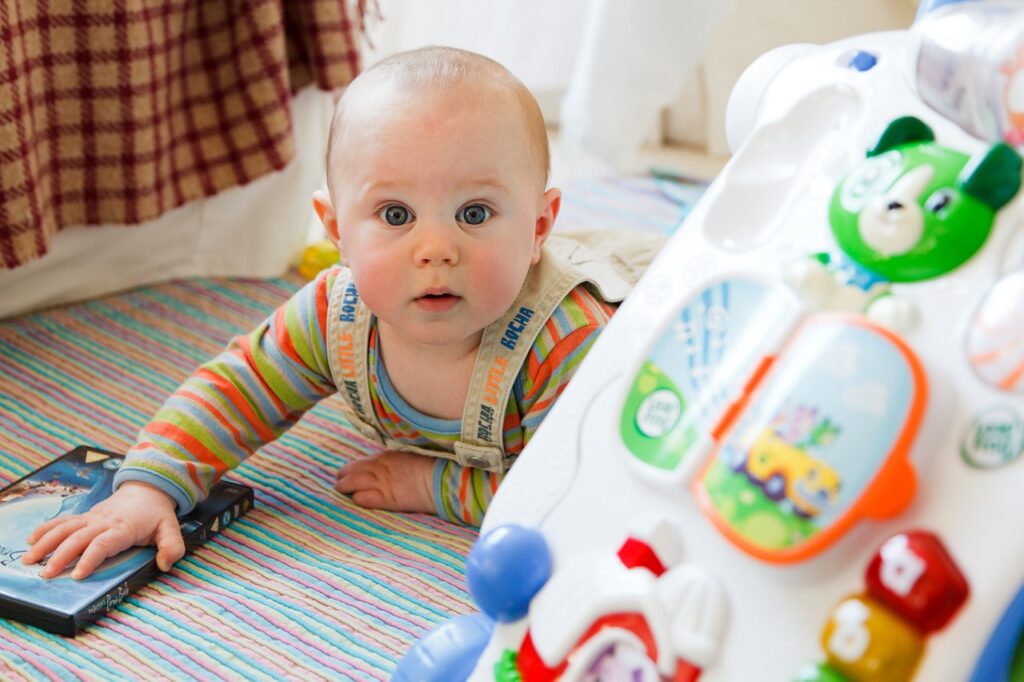Learning to talk: 0 to 6 months
Babies and young children love it when you chat, play and read with them, even if you think they’re too young to understand.
You can turn almost anything into a game. And every little thing you do together will help set them up nicely for the day they start school.
Chat, play, read!
Here are some tips and activities to help your baby develop their speech skills by chatting, playing, and reading together.
- try playing with things your baby is interested in, and be at their level physically while you’re playing together
- as soon as you notice your baby looking or pointing at something, talk about it before their attention moves on to something else – that might be within a couple of seconds for babies
- use picture books to introduce your baby to new things – point to the pictures and say what you see
- take turns to make noises or speak with your baby, even with young babies, as you can respond to their babbling by copying back the sounds you hear and then waiting for them to take another turn
- make reading, singing and playing fun by using lots of actions and different voices
- use the same song or book – babies and young children learn a lot when they are familiar with particular songs and books
- talk to your baby in short, simple sentences, as it helps them understand what you are saying and makes it easier for them to have a go at copying when they are ready
Ideas to help your baby learn
Here are some ideas to help your child learn by chatting, playing and reading with them.
Learning activities
Your local council may offer activities to help your child improve their communication, language and literacy skills. Find local learning activities for your baby.
Learning more than 1 language
It’s important to talk to your child in the language or languages you use.
A child learning more than 1 language should babble and say their first words in the same way as a child learning one language.
It is important not to confuse this slight delay with language difficulties – most children quickly catch up.
For more help on languages, have a look at the parent’s questions on the National Literacy Trust website.
Help and advice
Your baby’s eyes and hearing will be checked while you’re still in hospital, or within a few weeks after the birth.
Your midwife will support you for a week or so after your baby is born and then a health visitor will take over. Your first appointment will be around 10 to 14 days, then at 6 to 8 weeks. You can discuss your baby’s development and ask any questions you might have.
Ask your health visiting team for support whenever you need it, they will be able to provide tips and advice. Remember, children learn to talk at different ages. If you are worried, speak to your health visitor or nursery key worker. Or contact your local speech and language therapy service for advice.
For more ideas on how you can help your child, visit:
Sign up for emails
Emails include NHS trusted advice and support, tailored to your stage of pregnancy or baby’s age.



